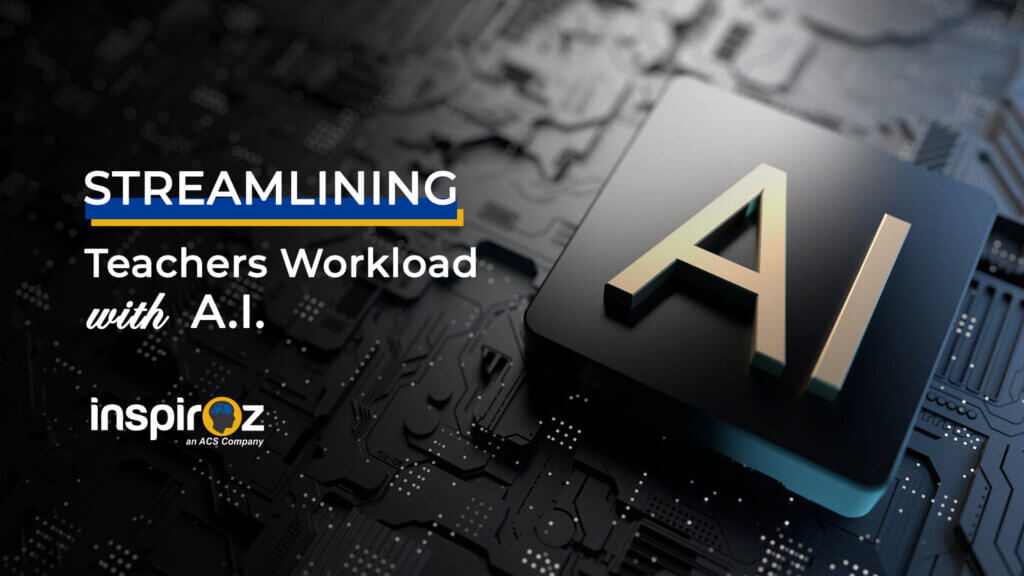How AI can automate time-consuming administrative tasks, so teachers can focus more on teaching and less on paperwork.
Blending artificial intelligence (AI) with education has become an important catalyst for change, especially when it comes to automating administrative tasks related to education.
This evolution is more than just technological adoption; it represents a strategic pivot toward augmenting the efficiency and efficacy of educators.
In this article, we will dive into how AI is reconfiguring administrative functions in education, empowering educators to re-dedicate their focus to their primary work – instruction.
The Dilemma of Educational Management
Instructors frequently find themselves caught in a tangle of administrative responsibilities.
Research conducted by the National Education Association finds that educators allocate upwards of half their professional time to non-instructional activities, including administrative obligations.
The amount of time available for direct student interaction and instructional planning is greatly reduced by this disparity.
"Many educators are feeling burned out and increasingly considering leaving the profession due to the heavy workload and stress related to staff shortages, among other factors.
The survey, which was conducted by GBAO Strategies in January 2022, showed that a significant number of educators (55%) were contemplating leaving their profession earlier than planned, exacerbated by the pandemic and its impact on staffing and workload."
AI’s Role in Grading
A particularly difficult task for instructors is the grading of large quantities of student work.
Here, a paradigm shift has been driven by AI. Automated evaluation systems now possess the capability to appraise multiple-choice and fill-in-the-blank assessments.
More sophisticated systems are in development to evaluate open-ended responses and discussions.
A study by the National Center for Education Evaluation and Regional Assistance attests to the efficacy of AI in an essay appraisal, demonstrating a high correlation of 0.94 between AI and human gradings.
Optimizing Attendance and Administrative Reportage
Attendance management is another domain where AI excels. Through AI mechanisms, attendance can be tracked with precision, reducing errors and economizing time.
Furthermore, AI can generate insightful reportage on student attendance trends, facilitating early detection of issues such as chronic absenteeism.
Data from the U.S. Department of Education indicates that chronic absenteeism impacts approximately 14% of the student body nationwide, underscoring the necessity for efficient monitoring systems.
Cultivating Tailored Learning Experiences through AI
AI’s ability in data analytics extends to the crafting of individualized learning experiences. AI frameworks can scrutinize student performance data to customize educational experiences to individual requirements.
A RAND Corporation study demonstrates that personalized learning methodologies can lead to notable enhancements in mathematical and literary competencies, exemplifying the potential influence of AI-facilitated personalization.
Harnessing the power of AI to create more personalized learning experiences, Inspiroz Insights offers solutions that could be transformative. With its expertise in integrating AI into educational settings.
Inspiroz Insights can help design systems that not only track and analyze student performance but also adapt to it, fostering an environment where every student has the potential to thrive.
AI as a Catalyst for Effective Communication
AI-infused chatbots and virtual assistants can manage routine queries and scheduling, liberating educators for more profound interactions.
According to Salesforce, 23% of tertiary education institutions have already integrated AI chatbots for student services, signifying a burgeoning trend in this sphere.
Challenges and Moral Deliberations
Notwithstanding these advancements, the incorporation of AI into education is not devoid of challenges. Considerations of data privacy and ethics are paramount.
AI systems must adhere to legislation like the Family Educational Rights and Privacy Act (FERPA) in the U.S., safeguarding student educational records.
Preserving the Human Essence in Education
It is vital to acknowledge that AI serves to supplement, not to supersede, the human element in education.
The empathy, inventiveness, interpersonal connections, and knowledge that teachers bring to the classroom are invaluable and irreplaceable.
Prospective Outlook
The prospective landscape of AI in education is filled with promise. As technology progresses, we can anticipate an array of novel applications that further mitigate administrative burdens.
This advancement indicates a new age in education when educators will have more time to dedicate to motivating and educating students.
Conclusion
The role of AI in alleviating administrative duties in education represents a significant advancement.
By assuming the mantle of time-intensive tasks, AI empowers educators to concentrate on instruction.
As we navigate this technological integration, maintaining a balance with the human facets of education is essential, ensuring that students remain the ultimate beneficiaries.




